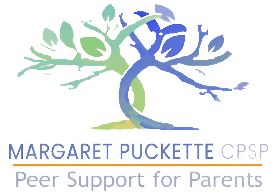All people with brain disorders need a whole body/whole life approach to treatment–no one medical practice is sufficient. Neither mainstream psychiatry or naturopathy have all the answers for mental health, but both recommend multiple types of treatment: diet, medication, therapy, exercise, gut health, and sleep, etc. This article is about brain diet specifically–foods which support or improve brain health.
These are some general rules for this food:
- Uncooked vegetables are ideal if appropriate. Cooking removes some of the essential nutrients.
- In the case of fish, raw may not be appropriate except for sushi or pickled herring. For fish that’s canned, choose fish packed in oil, not water. Omega-3’s are dissolved in the oil, but removed in the process of packing in water.
- Variety is important. Concentrating on a few foods exclusively is not helpful because you and your child still need additional nutrients that are important for your overall health.
- Food is better than supplements because food nutrients are properly absorbed in the body in the right ‘dosages.’
Be aware of food fads. There are no miracle foods.
Over the decades, people have been bombarded by different dietary research, and demanded foods that were reported to have benefits at the time. Food producers then labeled and provided whatever the public wants.
- A good example of a fad years ago was fat-free and oil-free foods. As it turns out, additional studies proved this was actually harmful–people need fats in their diet, but just a selection of fats.
- For decades, coffee and chocolate were once considered harmful, but this has since been proven wrong for most people.
- Diet sodas were supposed to be better than sugary sodas, but as medical research and understanding advanced, this was disproven. Sugar-free sodas are actually more harmful.
- There’s been an antioxidant craze. Yes, antioxidants are important, but these nutrients alone are insufficient for brain health.
- The “paleo diet” was big for a while. It was the great idea of someone who was not a paleontologist. Paleontologists themselves aren’t comfortable with the theory because they are still finding evidence of what early humans actually ate.
- Fads: Every few years, a new fad is created that praises or demonizes a food or supplement. You may wish to try it, but but be forewarned! There’s nothing new to medical science. It’s best to stick with knowns, and get a second opinion from an expert in case your child has a special condition like an allergy. For example, “gluten-free” foods are considered the only safe options. Gluten is very bad for a segment of the population but not everyone. What’s funny to me is that water has been labeled gluten-free.
Vitamin D deficiency is serious for mental health: In the case of psychiatric health, severe Vitamin D deficiency was discovered in ~75% of adults tested in a psychiatric hospital. Other studies have shown that those with mental illness tend to have abnormally low levels of Vitamin D.
“Vitamin D’s effect on mental health extends beyond depression. Schizophrenia has also been linked with abnormal levels of vitamin D.”
“..vitamin D activates genes that regulate the immune system and release neurotransmitters (e.g., dopamine, serotonin) that effect brain function and development. Researchers have found vitamin D receptors on a handful of cells in regions in the same brain regions linked with depression.”
Take the time to learn how to prepare these foods in ways that your and your kids like!
–Margaret
Resources:
The Psychological Consequences of Vitamin D Deficiency
These Foods for Anxiety Are the Good Kind of Stress Eating
Should you get your nutrients from food or from supplements? – Supplements can plug dietary gaps, but nutrients from food are most important


I like that you said that combing psychiatry and naturopathy can help your brain’s health. My cousin has his son with some mental problems that he wants to help him get over. I’m going to share with him this advice so that he can look for a treatment for him.
Thank you for sharing this information with your cousin. Mainstream medicine and naturopathic medicine have come far in supporting mental health, but they need each other to work better. The challenge in mental health treatment is that no one approach works on its own, but multiple approaches support each other. It’s kind of like eating a well-rounded diet instead of a few favorite foods.
The truth is, a child needs even more than these. Brain disorders impact all aspects of a child’s life: school, family, friends, activities. I am still hoping we see family mental health become part of a child’s treatment, as well as intelligent educational accommodations.